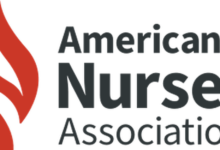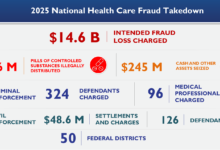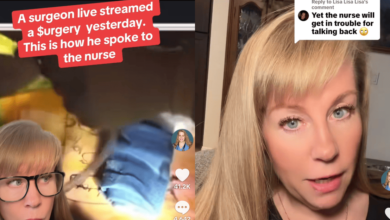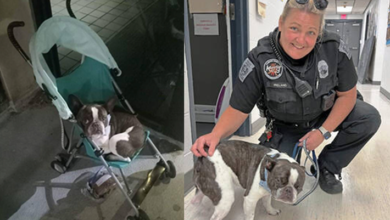Gynaecology nurse specialist calls for more investment in role

Northern Ireland’s only nurse hysteroscopist has called for trusts to invest in more specialist gynaecology nurses, to help tackle waiting lists in the country.
Vicky Burns, who has been working in gynaecology since she qualified 18 years ago, became a nurse hysteroscopist at Northern Health and Social Care Trust in 2021.
“We’re a bit behind the times within Northern Ireland with regards to investment in women’s health nurse specialists”
Vicky Burns
Her appointment led to the trust opening a dedicated nurse-led women’s health service in 2022 to provide hysteroscopies among other services.
A hysteroscopy is a test to look inside a woman’s womb using a thin tube with a small camera inside it. The procedure can investigate gynaecological issues including heavy or unusual bleeding, fibroids and polyps and problems with pregnancy or miscarriages.
Ms Burns told Nursing Times her nurse-led service had made a “positive impact” on reducing gynaecology waiting lists at the trust.
“I’m fortunate to sit within a really good team that want to provide new and innovative ways to look after patients and diversify the role of nurses,” she said.
Previously, patients were waiting around 45-50 days to be seen for a hysteroscopy, but since the launch of the service, patients are waiting for almost half that amount of time.
“Patients were waiting quite a long time just for a routine appointment for hysteroscopy, but we virtually have no waiting lists for that 1715954349,” Ms Burns added.
Similarly, she said her service had “freed up” time for medical colleagues to do the tasks which only they can do, in turn helping to reduce waiting times.
Ms Burns said she had always wanted to progress in the specialism and eventually become an advanced nurse practitioner.
Unfortunately, due to a lack of advanced nurse practitioner courses in women’s health, she has had to seek out her own training opportunities to begin working at a level “as the other ANPs” in Northern Ireland.
Ms Burns noted that she had to qualify in hysteroscopy in Bradford, England, due to the lack of courses in Northern Ireland.
“We’re a bit behind the times within Northern Ireland with regards to investment in women’s health nurse specialists,” explained Ms Burns.
She added that there were advanced practice courses in learning disability, older people, emergency care, mental health and midwifery, but nothing for women’s health in Northern Ireland.
“There doesn’t seem to be any particular investment or opportunities really for somebody who is wanting to diversify and have that advanced clinical practice within women’s health,” said Ms Burns.
“I definitely think there needs to be more.”
“Hopefully within the not-too-distant future, there will be more of me”
Vicky Burns
Ms Burns noted that the need for specialist nurses in the area had grown in recent years, due to the increase in referrals to women’s health services.
She added: “We certainly see that in the trajectory of our referrals from post-menopausal ladies, or post-menopausal bleeding.
“And with the uptake of [hormone replacement therapy], our referrals are through the roof.
“For there to be no opportunities for a nurse to help tackle those waiting lists is pretty shocking.”
Despite there being “a large cohort” of nurse hysteroscopists in England, several in Scotland and a few in Wales, Ms Burns remains the only nurse hysteroscopist in Northern Ireland.
She admitted that sometimes it “feels a little bit lonely” but that she hoped that other trusts in the country would consider introducing the specialist role once they saw the success her clinic was having.
“Hopefully the bit of exposure that we’ve had has generated some talk, certainly within the region…and we’ll get all our trusts in Northern Ireland talking about it and hopefully creating positions like this within the whole of Northern Ireland,” she told Nursing Times.
“Hopefully within the not-too-distant future, there will be more of me.”






